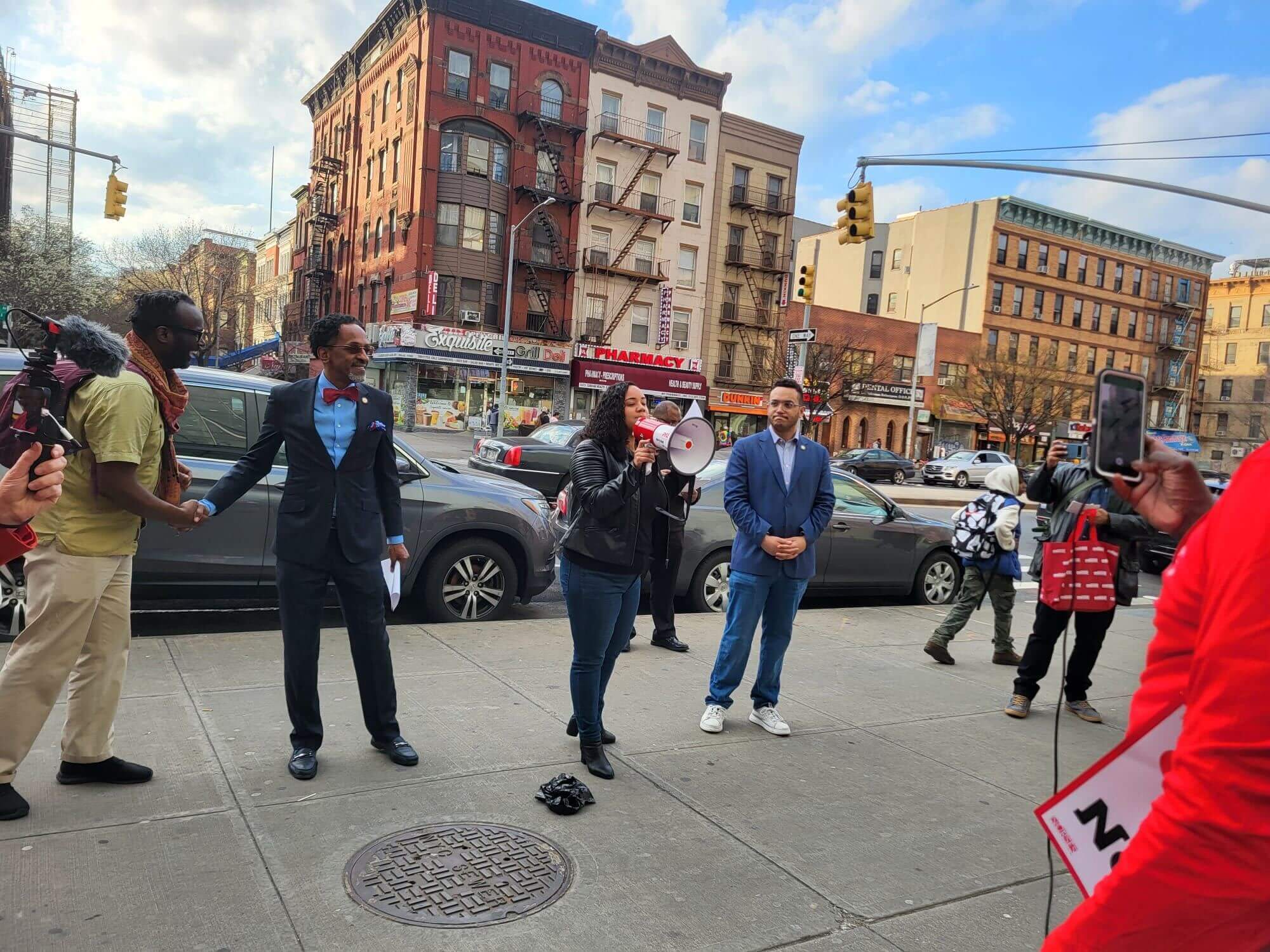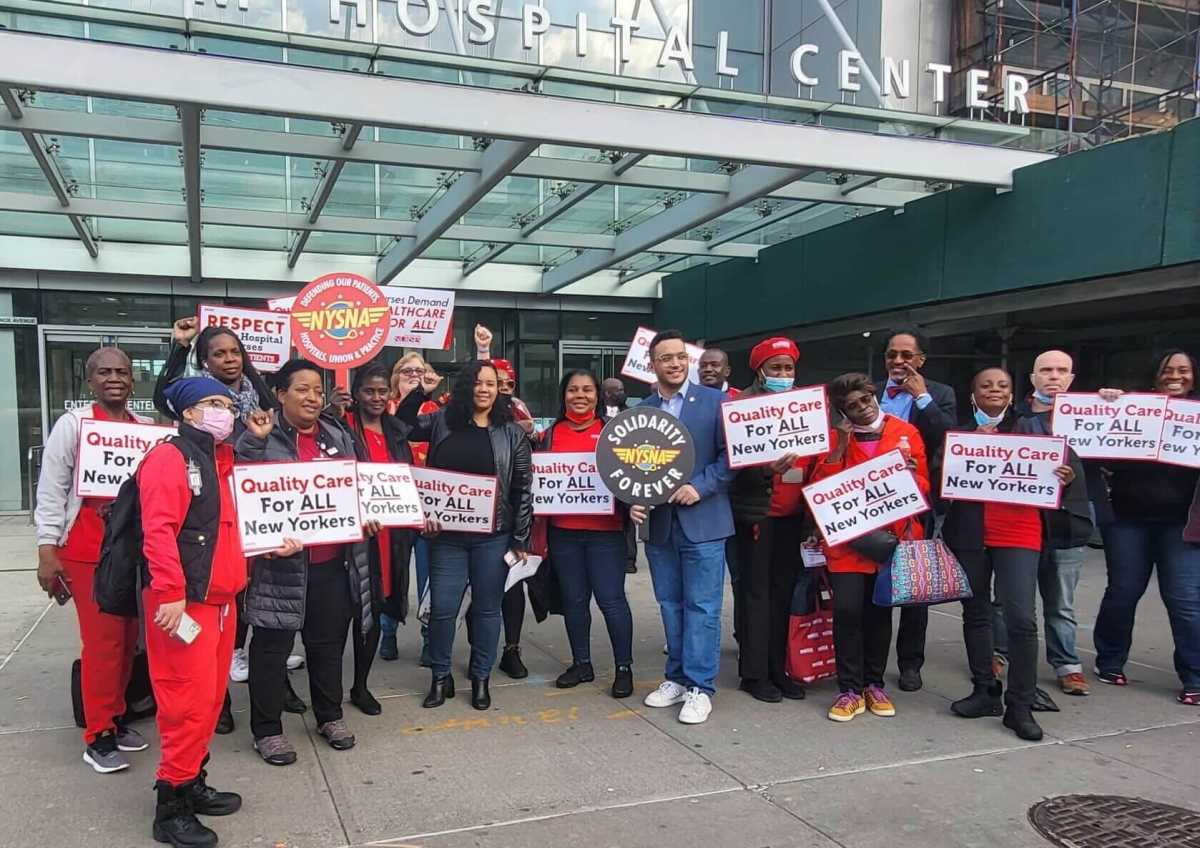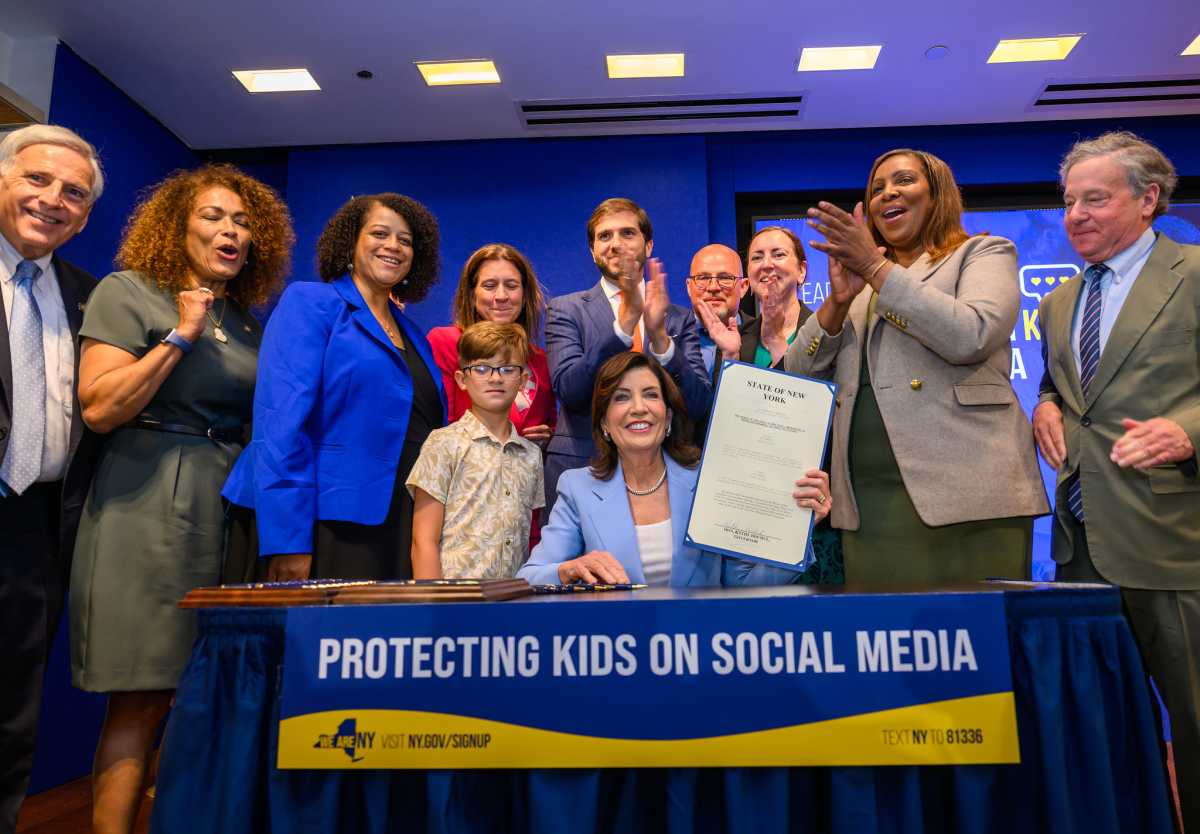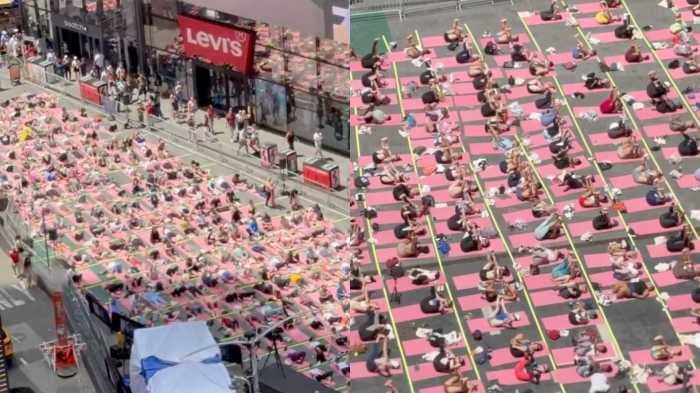Public hospital nurses rallied outside of Harlem Hospital on Tuesday demanding higher pay, on par with private-sector nurses, and better staffing levels across New York City’s municipal hospitals.
The nurses, who were joined by elected officials and community allies, shared their experiences at the annual Board of Directors meeting for New York City’s Health+Hospitals System, the country’s largest public healthcare system.
The rally, held prior to the board meeting, was organized by the New York State Nurses Association (NYSNA), the state’s largest union representing 42,000 registered nurses, and took place three months after private-sector nurses went on strike. Around 9,000 nurses are currently involved in the union’s contract negotiations, according to NYSNA.
NYSNA president Nancy Hagans, a critical care nurse at
Nurses spoke out during the board meeting about caring for Black and brown patients and the frustration they experience when there aren’t enough nurses at their bedsides.
“Nurses are calling for New York City to do the right thing and work with us to recruit and retain enough nurses,” Hagans said. “That starts with pay equity for public-sector nurses.”
Dr. Mitchell Katz, president of the board and CEO of Health+Hospitals, acknowledged the workforce challenges the hospital system is facing when he spoke at a city council meeting on March 21.
“The hardest areas to recruit nurses right now (are) emergency room nurses, surgical nurses, ICU nurses,” Katz said. “The goal should be us hiring permanent nurses.”
There are currently 8,000 nurses who work across the NYC Health+Hospitals system — 2,000 of whom are temporary nurses. The hospital system was paying $110 to $130 per hour for these traveling nurses while permanent nurses are paid $70 to $80 per hour, said Katz and NYC Health+Hospital chief financial offer John Ulberg at the meeting.
“Like many other health systems dealing with staff shortages, we rely on contract nurses to temporarily support our dedicated health care teams,” said NYC Health+Hospitals spokesperson Christopher Miller. “The goal is to reduce our dependency on temporary staff, because we know that it’s good for our entire health system.”
The union contents that the average salary for staff nurses is roughly $48.41 per hour and the median salary is $46.73 per hour.
Emergency department nurses at the Lincoln Hospital in the Bronx recently found that they are regularly understaffed, and on some days, they are missing eight to 15 nurses on shift that should have 60 nurses, said NYSNA director and registered nurse Sonia Lawrence.
“On the worst days, there are only 45 nurses trying to do the work of 60 nurses,” Lawrence said. “Understaffing is not just a problem in one department. It is severe throughout the hospital.”
Musu King, a registered emergency department nurse at Lincoln Hospital, said her biggest concern is that the safety of her patients is jeopardized, especially because she works at the borough’s only Level 1 Trauma Center, which is capable of providing total care, prevention, and rehabilitation for every injury.
But King said the critical care area of the Emergency Department should have a 5:2 ratio of nurses to critically-ill patients, but at her hospital, the ratio is 1:6-7, or one nurse for six to seven patients.
“We have ambulances bringing people in all day and night,” King said. “A typical day is hectic, especially because we’re short staffed. When patients get frustrated with long wait times, they take it out on us. We are trying to take care of everyone at the same time and that’s impossible.”
As the country’s largest public healthcare system, New York City’s 11 public hospitals provide care for 1.4 million New Yorkers every year. The rally held by public hospital nurses comes after thousands of private-sector nurses from Montefiore Medical Center and Mount Sinai went on a three-day strike following months of contract negotiations. The private-sector nurses won new contracts that NYSNA said has improved staffing and included 19.9% pay increases.
But this has left many public nurses with an annual pay disparity of $19,000, according to NYSNA.
“Amid budget negotiations, we must invest in our nurses rather than rely on the use of expensive travel nurses and rising health costs,” said Councilmember Carmen De La Rosa in a statement. “Those funds must be reallocated strategically to compensate long-term nurses rather than finding quick and ineffective bandage solutions to shortages.”
Councilmember Shaun Abreu said he supports nurses at Harlem Hospital calling for dignified working conditions and acknowledged how especially overworked and underpaid nurses of color are.
“Pay inequities in the public sector disproportionately impact Black and brown nurses and the Black and brown communities that turn to them for treatment,” Abreu said in a statement. “Our city can and must pay nurses equally with the private sector so they can deliver the life-changing services that keep our city healthy.”
Marie Harris, a registered nurse at Kings County Hospital in Brooklyn, said it’s not uncommon for nurses at her hospital to forfeit their bathroom and lunch breaks. Harris has worked in the pediatric emergency room since 2013 and has watched how the low staffing levels has evolved into an emergency situation itself.
“We give up our bathroom breaks and our lunch breaks to make sure that kids get the care they need because we’re short staffed,” Harris said. “Pay parity for public hospital nurses will resolve this staffing crisis.”
Said Katz at the March 21 city council meeting: “The city is in active negotiations with NYSNA and that’s the vehicle to provide compensation that is fair for the nurses and that recognizes their amazing contribution to the city.”





























